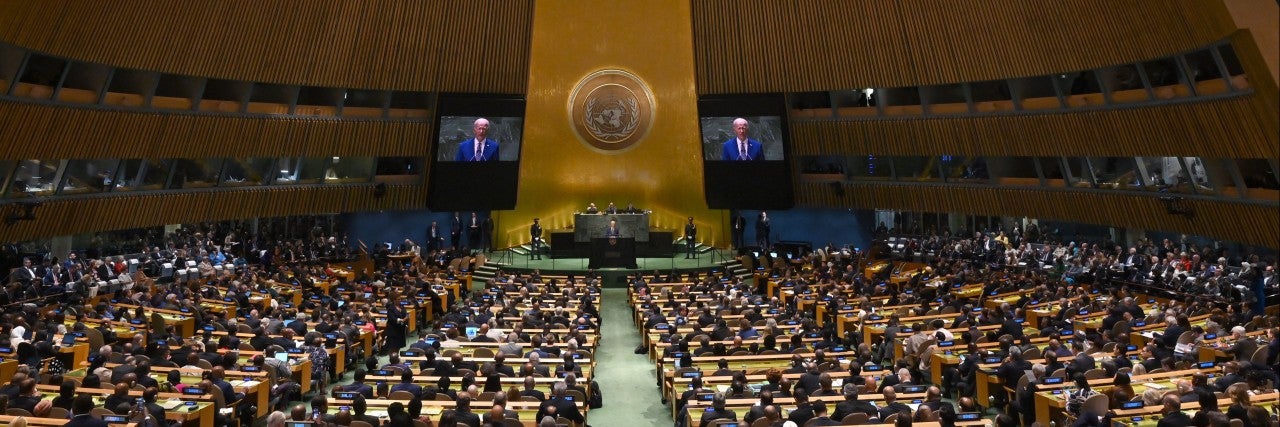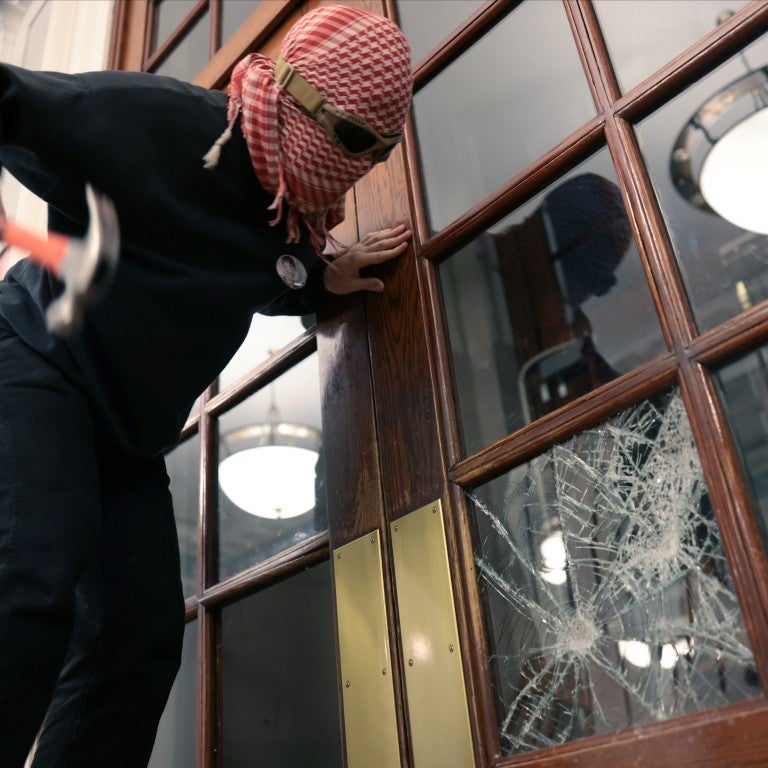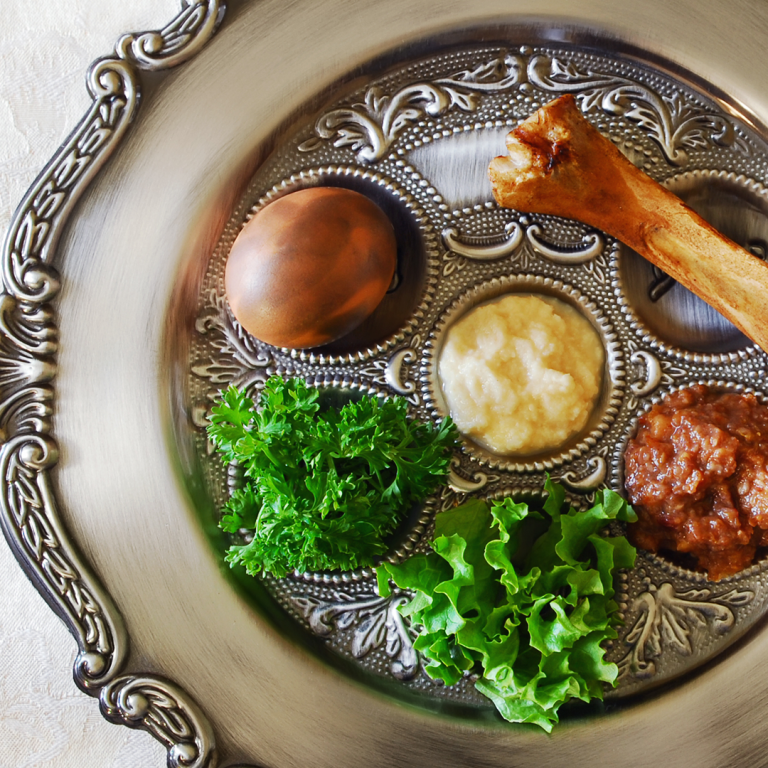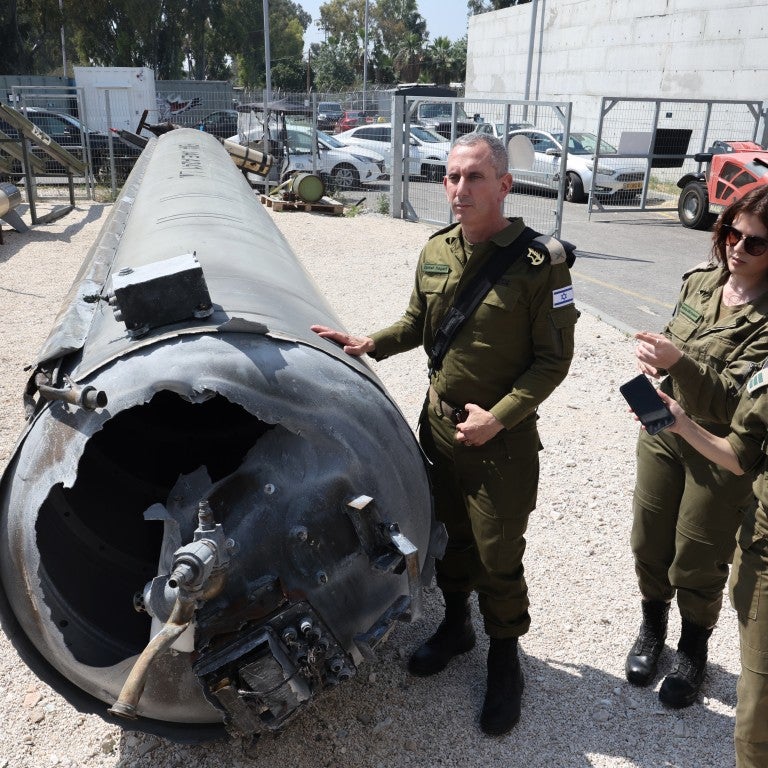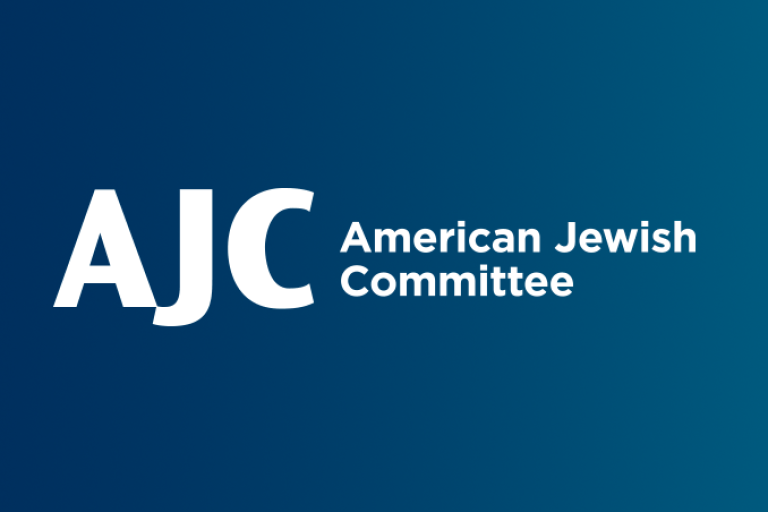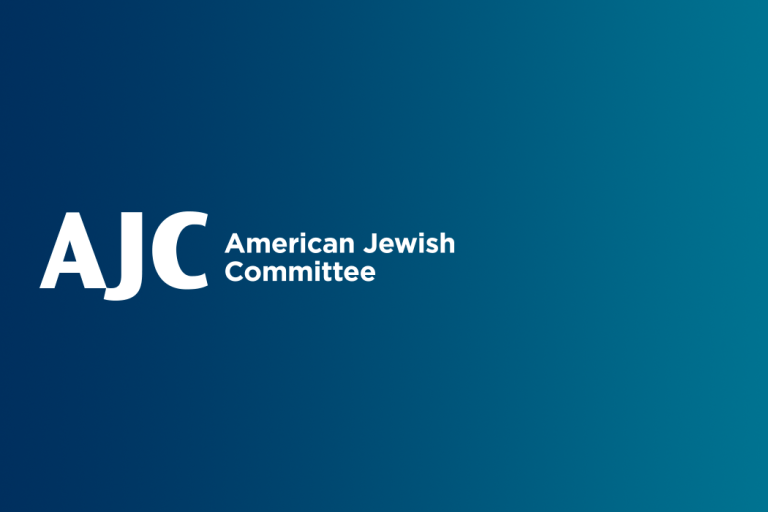September 21, 2023
This week, Simone Rodan Benzaquen, Managing Director of AJC Europe, joins us to discuss AJC’s leading role in the Jewish community’s diplomatic efforts at the United Nations General Assembly. Simone highlights key areas of advocacy, including countering the Iranian threat, addressing antisemitism and anti-Israel bias, advancing the Abraham Accords, and supporting Ukraine against Russian aggression. We also explore the impact of addresses from Palestinian Authority President Mahmoud Abbas and Iran's President Ebrahim Raisi, who have used the UN platform to spread antisemitic and anti-Israel narratives. Simone sheds light on the challenges and progress in shaping international policies on these critical issues.
*The views and opinions expressed by guests do not necessarily reflect the views or position of AJC.
Episode Lineup:
- (0:40) Simone Rodan Benzaquen
Show Notes:
Test your knowledge:
Read:
- AJC Advocacy at UN General Assembly 2023
- Top 5 Things AJC is Tracking at the United Nations General Assembly
- Five Things to Know About President Raisi and Human Rights in Iran and Beyond
- Key Takeaways From President Biden’s Address to the UN General Assembly
- Mahsa Amini Protests One Year Later: What is the Current Human Rights Situation in Iran?
Listen:
Follow People of the Pod on your favorite podcast app, and learn more at AJC.org/PeopleofthePod
You can reach us at: peopleofthepod@ajc.org
If you’ve enjoyed this episode, please be sure to tell your friends, tag us on social media with #PeopleofthePod, and hop onto Apple Podcasts to rate us and write a review, to help more listeners find us.
Transcript of Interview with Simone Rodan Benzaquen:
Manya Brachear Pashman:
All this week, leaders from 193 nations have gathered in New York, addressing the United Nations General Assembly. But there's a lot of action on the sidelines as well. That's where policy experts from the American Jewish Committee do their diplomatic outreach, urging leaders to expand and strengthen ties with Israel, and counter rising antisemitism and extremism. With us to discuss what's been happening on those sidelines is Simone Rodan Benzaquen, Managing Director of AJC Europe. Simone, welcome to People of the Pod.
Simone Rodan Benzaquen:
Thank you. Thank you very much for having me.
Manya Brachear Pashman:
So I'll start with Iran. How are we pushing leaders to address the threat from Iran this week?
Simone Rodan Benzaquen:
So Iran, as you rightly point out, is a really priority issue for us in all of the meetings we've had in particular with on my end with the European leaders, and it's, and our objective is really to make sure that we are countering Iran on all fronts. Of course, there's the nuclear file.
And so our objective is to push leaders to be aware and really understand that, if that was to happen, we are entering an entirely new world. If we think that the war that Russia has been waging on Ukraine was a game changer for the stability of the world, we have not seen anything yet. So our objective is to really push European and international leaders to really address the issue.
The second issue is, of course, human rights. We are now a year after the murder of Mahsa Amini, and really the horrible repression that the Iranian regime has committed against its own people. And there has been a time when European international leaders were very, very clear in their support for the Iranian people, and in condemning the Iranian regime and the Islamic Republic.
But these past months, we've heard a little bit less of that. So our objective is really, has really been to reengage them on that commitment.
And then third of all, and this is really a very specific issue, particularly in Europe, is the Iran Revolutionary Guard. And so the Iranian Revolutionary Guard Council, the IRGC, is not listed as a terrorist organization in the EU. And that is obviously not normal. First of all, because they have been committing horrible crimes in their own country, because they have been committing terrorist acts across the world. Because they are obviously a key sponsor of terrorism across the world, because of their role also in Ukraine.
They have armed Russia with Iranian drones, they have trained people on the ground. And lastly, and this is for us, very important as the Jewish advocacy organization, they have been threatening Jewish communities across Europe. There are a number of cases that are now very clear, which include in Germany, in the United Kingdom, but also in Greece and in Cyprus, where it's very clear that Iran is threatening Jewish communities and Israelis on European soil.
Now, Europe for the past years, has made it very clear that it's a key priority for itself to combat antisemitism on the ground and in Europe. And that's a very important commitment. Now, if they're very, very serious about that commitment, they also have to act against the IRGC, which is today a key threat to Jewish communities on the ground.
So we have been pushing European leaders to take steps to list the IRGC as a terrorist organization. As always, this will take time; it's not going to happen just during the UN General Assembly. But we've made some progress. We have had some very good conversations with a number of European countries and I hope down the line that we will be able to get there.
Manya Brachear Pashman:
So now what about Hezbollah? Because I know for many years we have pushed leaders at the UN General Assembly to designate Hezbollah, a terrorist organization in its entirety. This campaign has been going on for many years. Is that campaign changing in any way this year?
Simone Rodan Benzaquen:
No, it's not changing, it continues to be a key priority for us. By the way, the issue is linked, of course, I mean, what is Hezbollah, if not a proxy of Iran, an Iranian state within Lebanon, that is threatening, of course, Israel, but also has been committing terrorist acts across the world.
So no, it has not changed. We are just trying to link the dots and explain to everybody that everything is linked. We're not there yet. There are a number of countries, as you know Manya, who have taken individual steps in Europe to list Hezbollah as a terrorist organization, because it is blocked on the EU-wide level.
But you know what, we just celebrated Rosh Hashana. You know, at the end of the day, there is always hope, particularly for the Jewish people. So we will not be giving up on it and eventually we'll get there.
Manya Brachear Pashman:
You mentioned the IRGC's role in Ukraine with providing weapons and we heard from Ukrainian president Volodymyr Zelensky this week, warning that Russia was weaponizing essentials like food and energy, not only against Ukraine, but against every country. And I know the UN Human Rights Council created, with AJC's urging, an independent International Commission of Inquiry on Ukraine, which has already determined that Russia is responsible for war crimes. So how are we advancing that conversation on the sidelines this week?
Simone Rodan Benzaquen:
Listen, on the European side, I would say the conversation is very easy, because Europeans understand that if Russia is allowed to strategically win this war. That means that, though, that they, their countries, that the European Union, as such, will be threatened by Russia. Russia will not stop with Ukraine. President I hesitate always to call him president, but Putin has made it very clear that for him, the biggest catastrophe of the 20th century, is the fact that the Euro that the Soviet Union fell apart. And so he wants to go back to that scenario.
So Europeans are aware of it, their commitment to Ukraine, is very much there, actually, surprisingly, because many people, when the war started, were very much afraid that that, at the end, you know, there will not be European unity, that there will not be unity in the international community and in the West, in their support for Ukraine, and finally, you know, a year and a half later, we're still there, the United States is committed in supporting Ukraine, the European Union is committed in supporting Ukraine.
But more needs to be done. We need to be able to provide more help to Ukraine. And again, as you said, especially as Russia is weaponizing every single possible way, whether it's energy, whether it's food, to exert pressure, to make sure that at the end, we are faltering.
Manya Brachear Pashman:
So I want to switch the focus a little bit from international diplomacy and war to the IHRA working definition. This has been an ongoing conversation with the UN. AJC has been urging the UN and its member countries to use it to develop plans to counter anti semitism. How is that coming up on the sidelines this week?
Simone Rodan Benzaquen:
So we've had some very constructive conversations, first of all, a majority of countries now have adopted the working definition of antisemitism. And they've recognized how much an important tool it is to not only to recognize, to define, but also to apply and to combat antisemitism. So it's a very constructive conversation. But we have also had conversations with countries who have not yet adopted the working definition, who would say, we don't have a problem of antisemitism, we don't really have to do it. And after explaining to them how important it is, and what an important tool it has been for countries, and what an important signal also it would send to the world, if they were to adopt the working definition of antisemitism.
I can tell you now, in advance that in a few days, a couple of countries will be announcing that they will be adopting the working definition of antisemitism because of the conversation that we have had with them.
Manya Brachear Pashman:
The conversation you've been having this week with them, or ongoing over a matter of time?
Simone Rodan Benzaquen:
Over a matter of time, but that was concluded, specifically here at the UN General Assembly this year.
Manya Brachear Pashman:
And what about anti-Israel bias? Has that come up? Because I know that has been a blockage for a lot of countries who won't adopt the IHRA working definition, they want to leave the door open for criticism of Israel, but there has been some pretty blatant anti-Israel bias at the UN. And that has really been a priority for AJC to address. How have you been trying to eliminate that kind of chronic one-sidedness that targets Israel?
Simone Rodan Benzaquen:
This is, I have to say, Manya, a complicated conversation that we've been having, obviously, for years. As you rightly point out, Israel is treated in a way that no other country is. There is a permanent agenda item at the UN Human Rights Council. There is a disproportionate number of resolutions against Israel compared to any other country in the world. Many countries we are speaking with acknowledge that fact. But often their excuse is that they are working in a multilateral environment and that is therefore complicated, because you always have to come to some sort of compromise. But I have to say that nevertheless, I think we are making progress.
If you and I had had that conversation 10 years ago, most European, most countries would not have even acknowledged that that was a fundamental problem. That situation today has changed. Many countries do recognize that there is something profoundly discriminatory in that disproportionate targeting of Israel. They just are very slow in finding solutions to that approach.
Manya Brachear Pashman:
We also heard from Palestinian President Mahmoud Abbas this week. What do you fear he is communicating? What do you fear that members of the United Nations are hearing from him and taking as truth?
Simone Rodan Benzaquen:
For years, I think Muhammad Abbas has been really in an endeavor to distort history by denying the link between the Jewish people and the land of Israel. He has engaged on a number of occasions in historical revisionism. He has been engaged in a number of occasions in Holocaust denial and antisemitism, in stereotypes and conspiracy theories. And I think the world needs to wake up to that reality.
I mean, if any other world leader had had that kind of discourse, take away the face of Muhammad Abba, take away the voice of Muhammad Abbas and just neutrally look at what he's been saying over the years, we would not accept that. The world, the Western world, the European Union, the United States, we would not accept that, and rightfully so.
So why is it that we should continue to accept these kinds of words? European leaders were right, the United States was right, to criticize Mahmoud Abbas, as they have, after his recent antisemitic remarks. But that needs to now apply all the time, we sort of have a bigotry of low expectations on Mahmoud Abbas. I mean, why is it that we consider him somehow not capable of living up to the same standards as everybody else? So I hope that the world will, at some point, wake up, and just expect of the Palestinian Authority and of Muhammad Abbas himself, to accept to have certain rules. He cannot continue to have these kinds of statements. He cannot continue to do the pay for slay, meaning to pay the families of convicted terrorists. He cannot continue to incite hatred in Palestinian schoolbooks. We have to set the same standards for everybody, including for Muhammad Abbas, including for the Palestinian Authority.
Manya Brachear Pashman:
And do you think the member states realize that or comprehend that and are kind of seeing through his narrative?
Simone Rodan Benzaquen:
There seems to be the beginning of a process. I don't know if we're there yet. But there seems to be a beginning of the process. I mean, when you have the mayor of Paris, for example, who took away the honorary medal of the city of Paris to Muhammad Abbas, when you have statements that you have never had before, by leaders of the Western world, criticizing Muhammad Abbas. I think we're maybe at the beginning of something new. I just really hope that we're not walking backwards from that, because we just simply cannot go back to that just behaving as if, you know, this wasn't happening.
Some of it has to do with the fact, with this delusional idea that, you know, if the Palestinian Authority was to fall apart, if Muhammad Abbas was to fall apart and not be president anymore, there would be worse. But still, I mean, this cannot be an argument in not having the same expectations of a leader than of any other leader in the world.
Manya Brachear Pashman:
So speaking of narratives, the president of the Islamic Republic of Iran, Ebrahim Raisi spoke to the general assembly as well, this week. His narrative was that Iran is the model of human rights and justice. Did that surprise you? What surprised you about his sermon, if you will, to the UN?
Simone Rodan Benzaquen:
No, there is nothing that surprised me, the Butcher of Iran, who is president, the president of the Islamic Republic of Iran, has been lying to everybody's faces, of course, for many years.
Iran is committing human rights abuses, Iran is imprisoning young people. Every single human rights organization has spoken about it. Every single western country knows it and has said it. They are committing rapes of young women in their prisons. They're abducting the families, including by the way the family of Masah Amini just a few days ago, every single day, and the fact that he is lying once again to the world is despicable.
What is equally despicable is that the Council of Foreign Relations has intended to host Ebrahim Raisi. There is no way even with people who are asking difficult questions or having difficult conversations with him. That it does anything else then legitimize him and legitimize this terrible, murderous regime. So the only thing that should be done is, really be as tough as possible with this regime, and clearly impose sanctions, condemn, walk out of the room, ignore, but certainly not welcome him with open arms.
Manya Brachear Pashman:
And do you think the world is buying his narrative?
Simone Rodan Benzaquen:
Well, it depends what you mean by the world. But I don't think the western world is buying his narrative at all. I think everybody knows, you know, the reality of things. They know everything that is wrong with the regime. There might be differences in how they think they should be approaching that and they might, by the way, also be differences in perception between some Western countries and ourselves on how we think things should be approached. But nobody is naive about what is actually going on in the country. And the way this person, the Butcher of Iran, is treating his own people.
Manya Brachear Pashman:
Simone, thank you so much for joining us, and giving us a glimpse of what's been happening there.
Simone Rodan Benzaquen:
Thank you.
